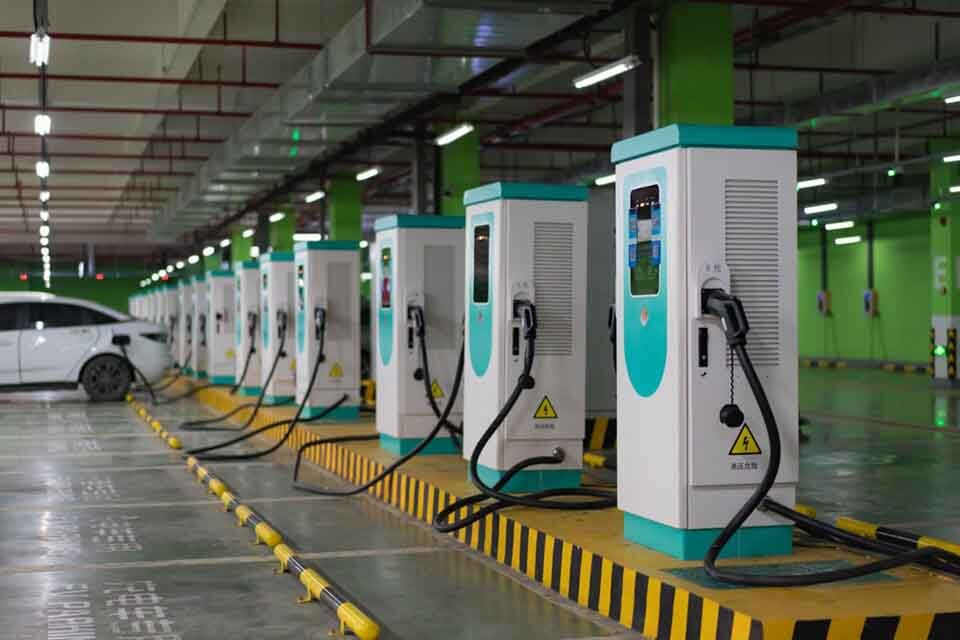More Electric Vehicle Charging Ports to Be Installed in Ashland in 2024

Love them or hate them, electrical vehicles have been on the rise. So much so, in fact, that Ashland is due to see a few more electrical vehicle charging ports in town come 2024. 22, to be exact, and Ashland isn’t the only one getting these chargers. Oregon is going to be installing 370 level 2 charging ports in 2024.
This comes to us from none other than the Oregon Department of Transportation and their Community Charging Rebates Program that launched in June.
The aim is to make charging ports for electric vehicles more accessible so that people who may be thinking about switching to an electrical vehicle (or EV for short) won’t be discouraged by the lack of charging ports around Oregon. They do this by reimbursing applicants who will pay to install these chargers, incentivizing them to install these ports in “strategic” locations, such as multi-family residences and public parking areas.
Reimbursement will cover 75% of construction and installation costs, so it’s not completely free. Around $1.75 million was awarded to 94 applicants who applied in for the funding that ran from June to October. Ashland was awarded $92,000, enough for the 22 charging ports that it sets out to install.
That was just the first round of funding, however. The Oregon Department of Transportation is going to allocate up to $7 million in awards. The next round of funding will begin in March of 2024, when Ashland will have already started their own construction of the EV charging ports. They hope to start either late in the winter or early in spring of 2024.
Matt Noble of the Department of Transportation was able to explain the project a bit more in a press release. “Seventy percent of first-round funding was reserved for projects in rural areas and disadvantaged communities, where gaps in public EV charging infrastructure are largest.”
As you may have guessed, Ashland was awarded due to its rural status, given the label of a “rural priority”, and just barely. Other places were denied due to their size. Medford, for example just too big. Phoenix and Talent also didn’t make the cut due to how close they were to Medford.
Noble wasn’t going to allow the department to take all of the credit, however. They had to get the charging ports from somewhere, and there was one company on its feet and ready to help. “We owe part of the program’s success to Forth, an electrification nonprofit based in Portland,” Noble said in the press release. “They helped us with community outreach, ran webinars, and answered questions from applicants.”
More Electric Vehicle Charging Ports in Oregon
Some might notice that with 370 charging ports to be built in all of Oregon, Ashland has a rather high amount when comparing their population to the other Oregon cities, even with the “rural priority” bit in mind. Chad Woodward, a climate and energy analyst for Ashland, was happy to clue everyone in on the phenomenon they may or may not have missed within the city. “The city of Ashland has a high adoption rate for EVs,” Woodward explained, “we have more EVs per capita than Multnomah or Washington counties.”
This is being done due to a 2015 study that showed that roughly 17% of Ashland’s greenhouse gas emissions were due to residential travel.
One objection that some may have is that EVs can be expensive. That may be true, but thankfully these public charging ports are going to be absolutely free to the public.
This isn’t even just the start of it. Remember how I said that the Oregon Department of Transportation was giving out up $7 million for this project? Well, Ashland can earn even more funding in the future. If a site has public parking, it can apply for a cool $4,250. Meanwhile, multi-family residences can apply for between $750-$5,500. If a site with public parking is interested, they can go ahead and apply.
These awards are given on a first-come, first-serve rule, so if they want to get one quick, they need to get one, they’ll need to apply when funding opens up once again in March. It will be coming from the National Electric Vehicle Infrastructure program, which is currently closed. There will be three more rounds of funding, so if someone doesn’t want to pay full price for a charging port in their lot, they’ll need to apply during the funding periods.
This is just one of Oregon’s plans in its $100 million commitment to EV infrastructure. The next four years are being dedicated to expanding Oregon’s charging network. In fact, in late 2022, Oregon’s Department of Environmental Quality passed a rule to ban the sale of new gas-powered passenger vehicles in 2035, aiming to cut emissions by 75% in 2050 and bring emission levels down to below what it was in 1990.


Comments are closed.